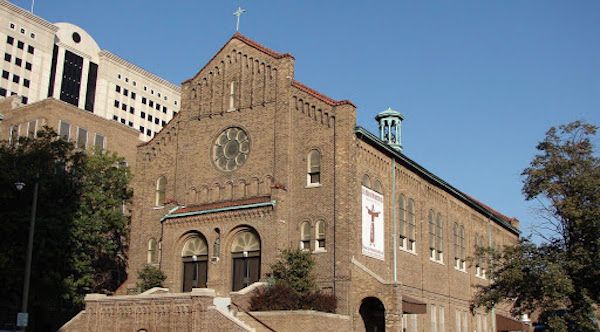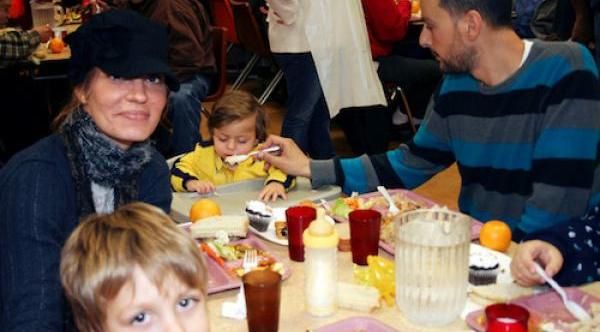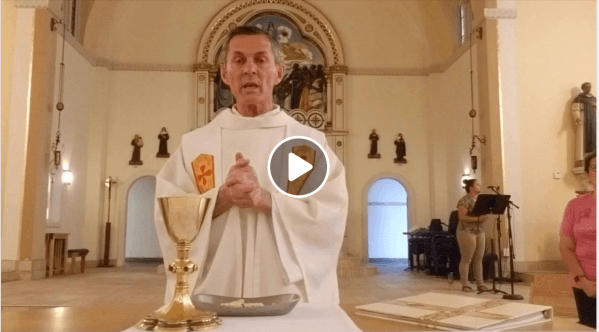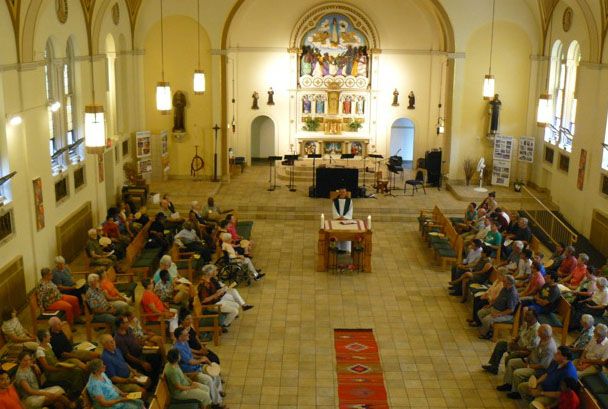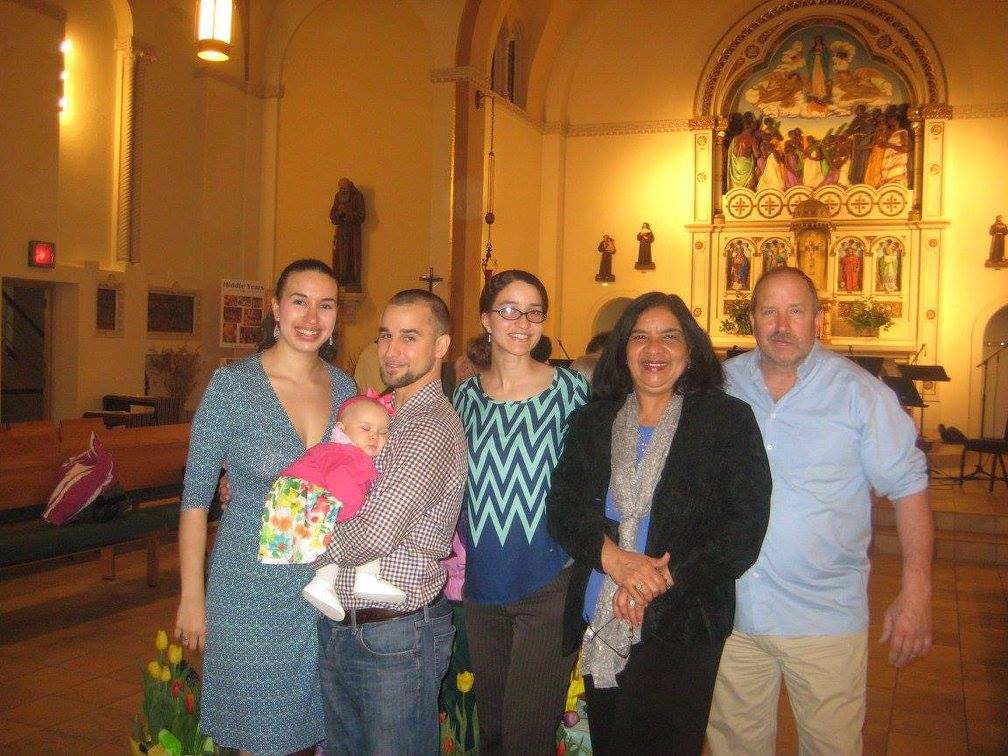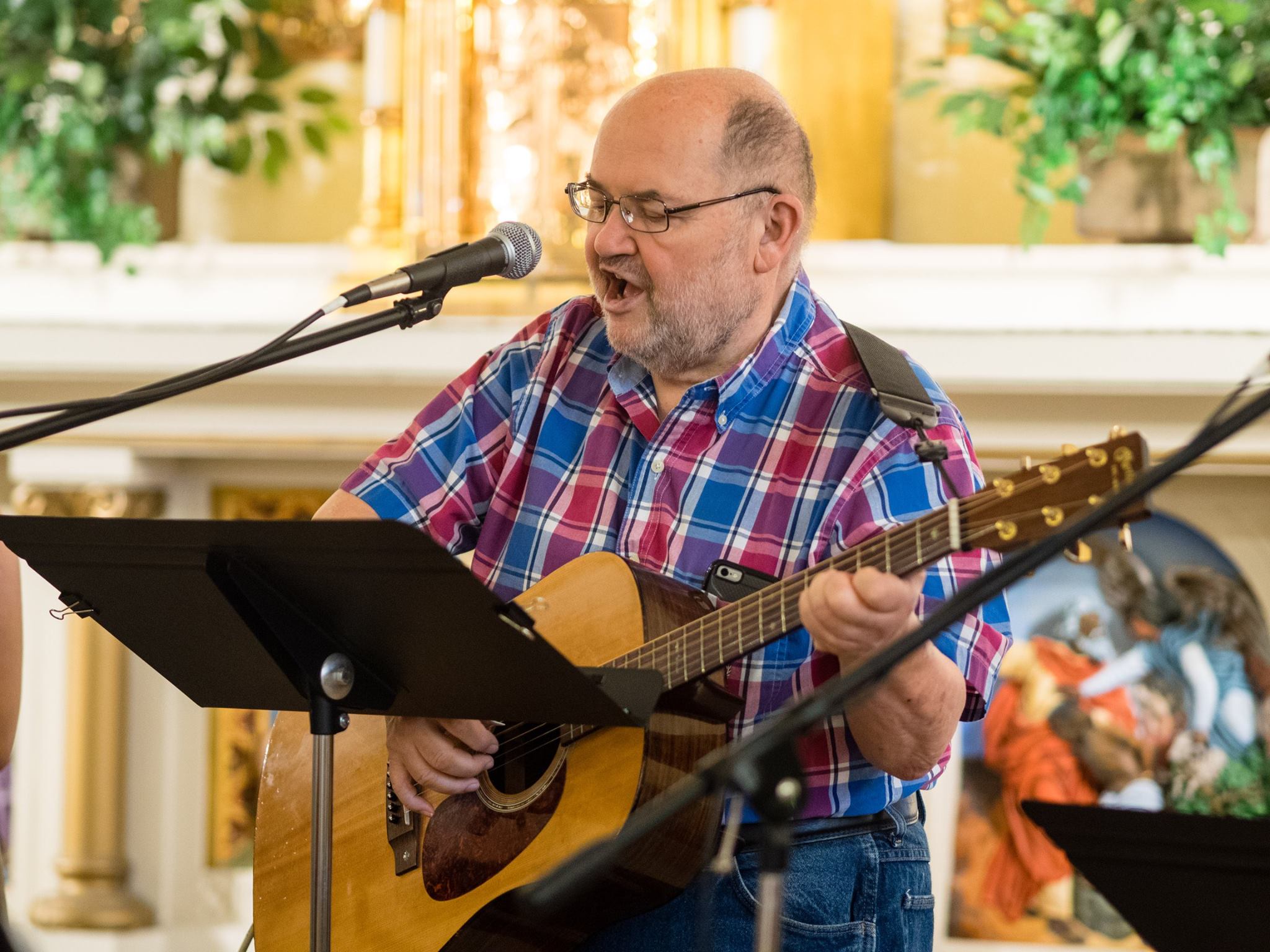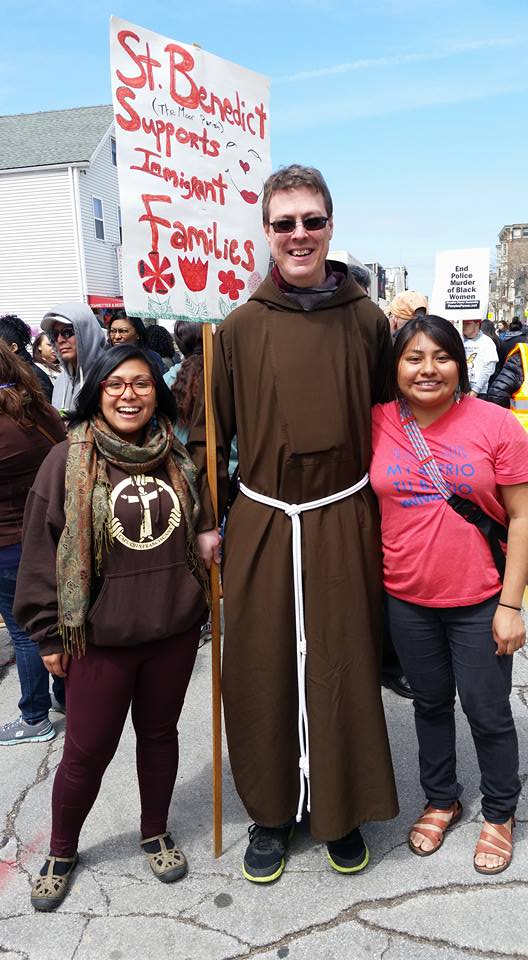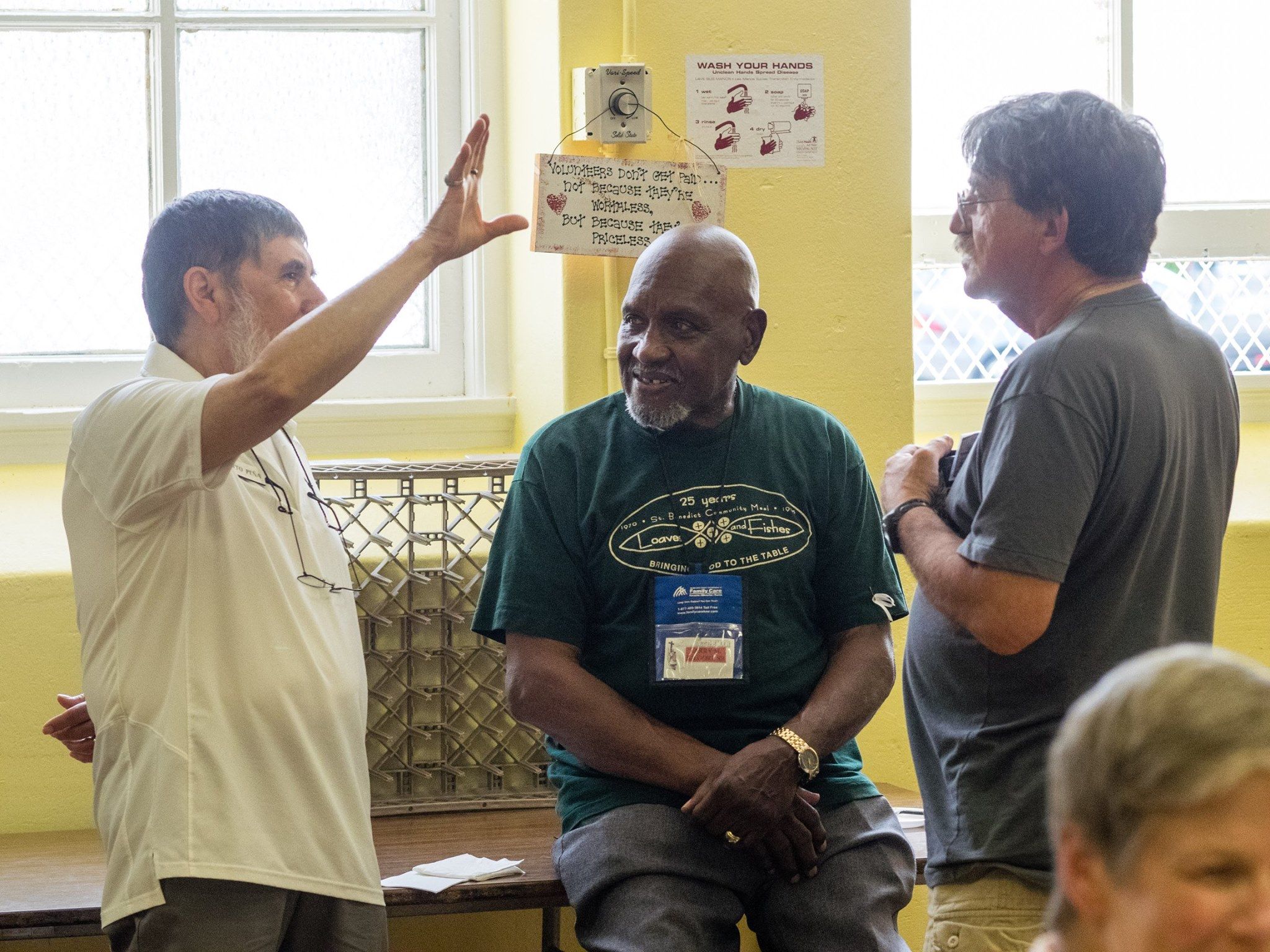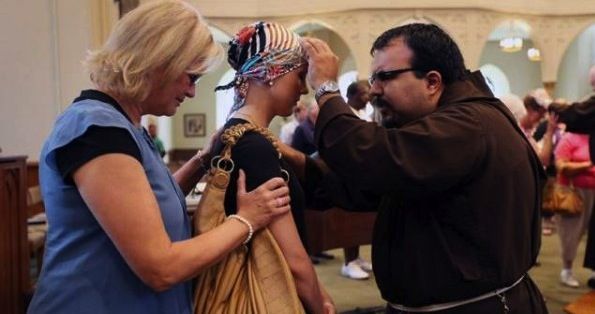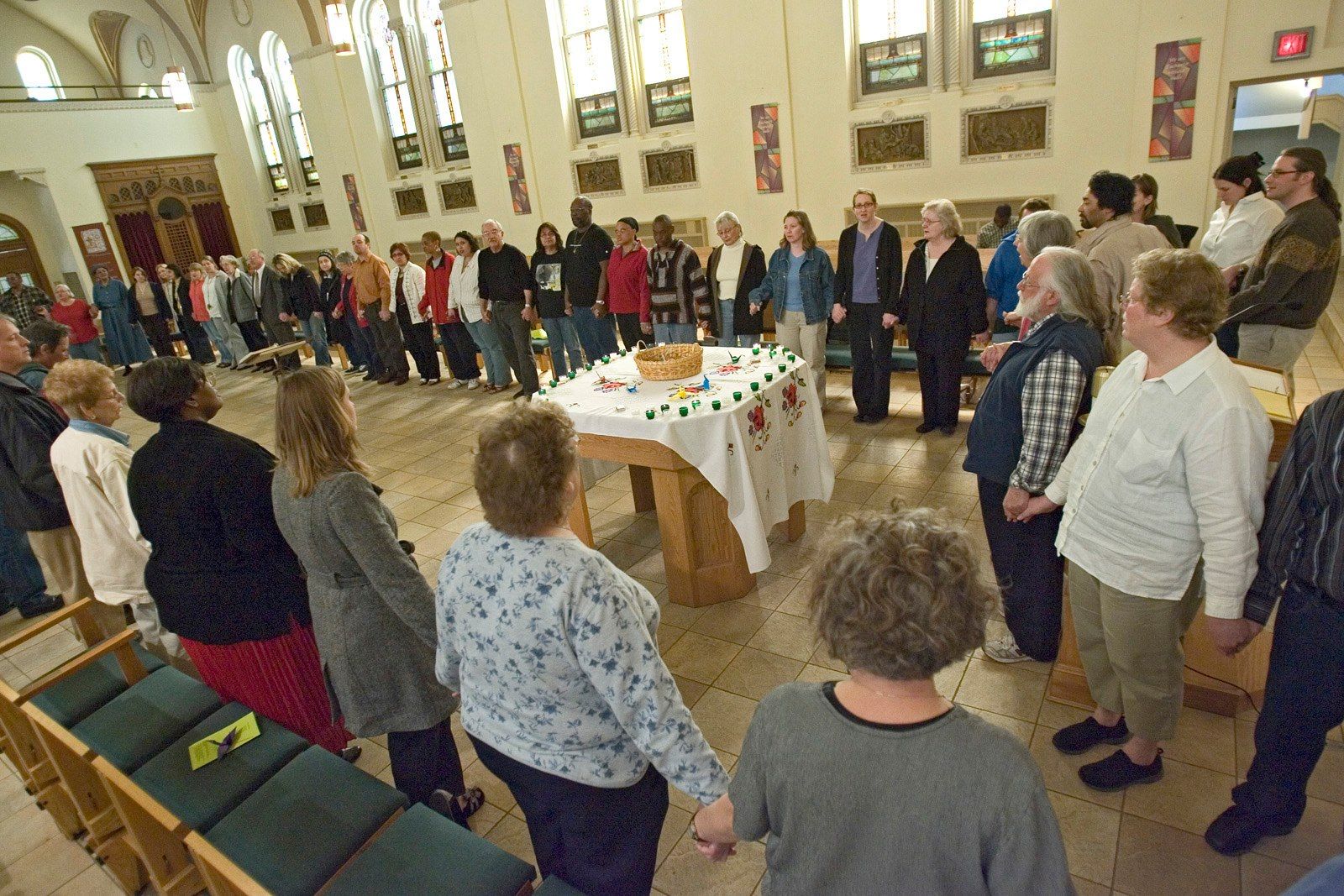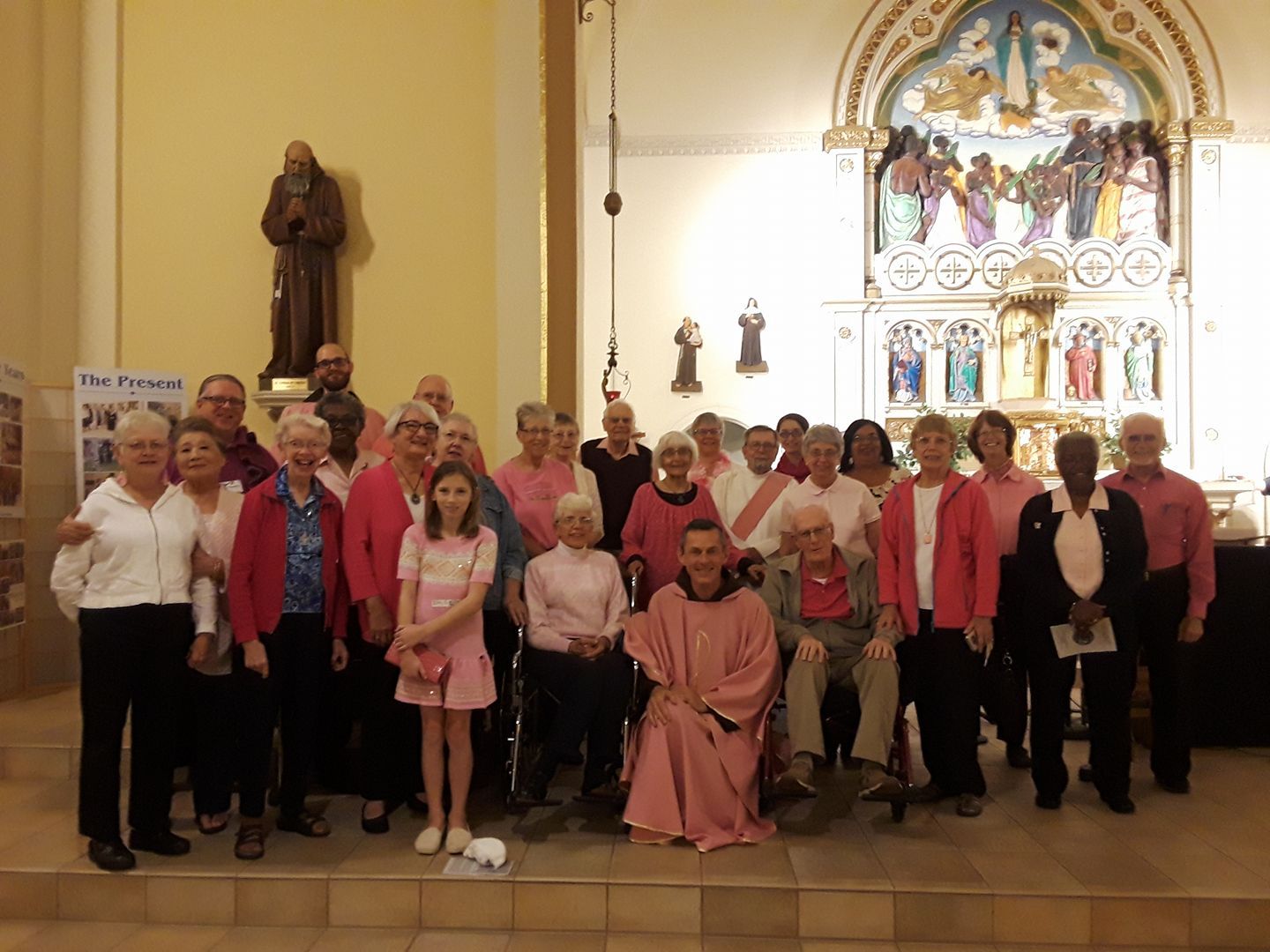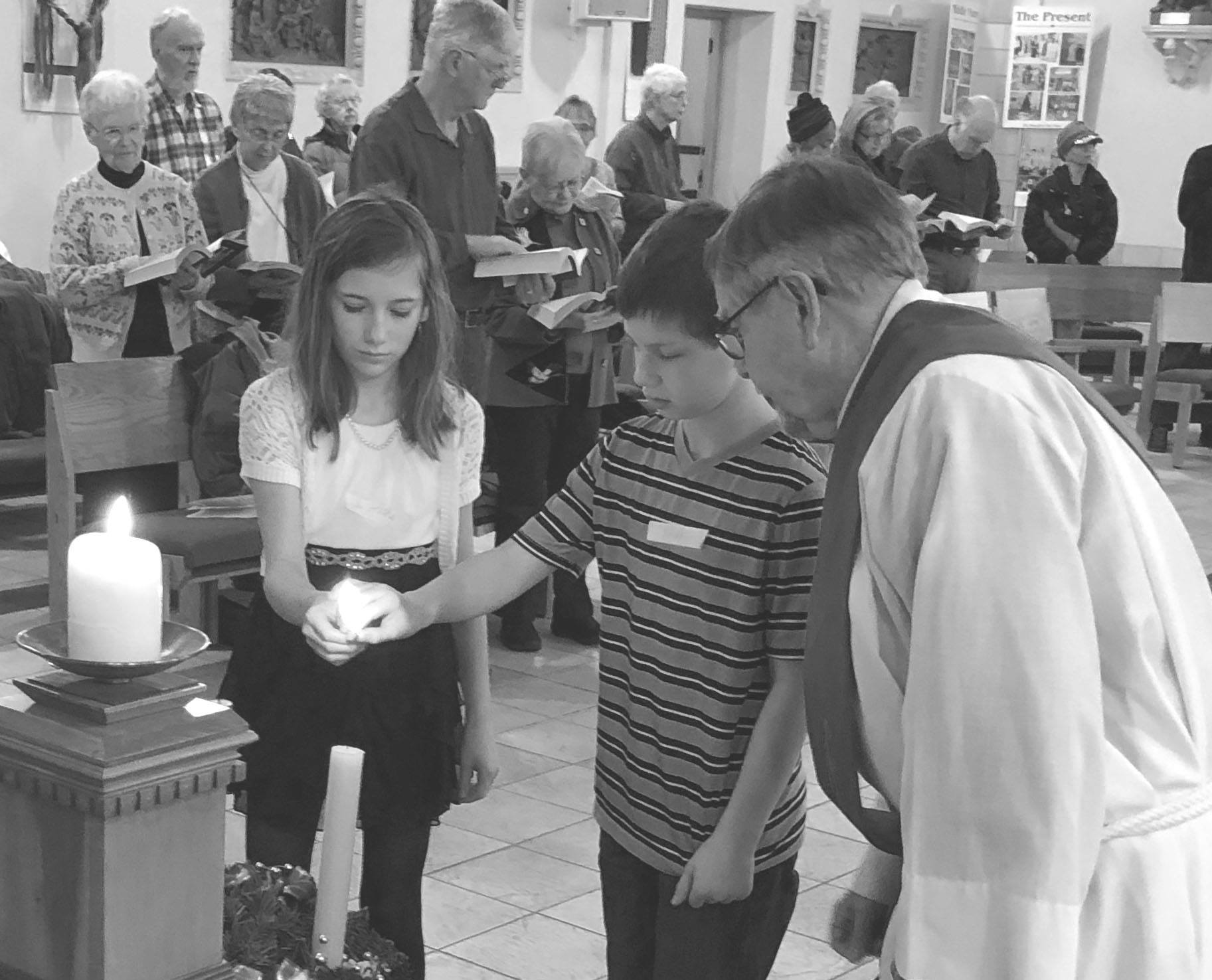[Pulse en leer más "Read More" para español]
The Gospel says that we need to hate our mother and father and family in order to be a disciple of Jesus. “Hate” was the word used in the Gospel. That sounds pretty harsh. I looked up the meaning behind that line and found that the evangelist Luke is emphasizing the total dedication to Jesus that is necessary of the true disciple. He doesn’t actually mean to hate our family members. But he’s trying to make the point that Jesus must be Number 1 in our lives if we are going to follow him.
We say, “Of course, I put Jesus Number 1 in my life!” Our words are quickly put to the test in the second reading with a real-life situation. Onesimus is a slave whom St. Paul now sends back to the community, asking the community to welcome him not as a slave, but as a brother, an equal. The reading ends without an answer: did the community welcome Onesimus as a true member of the community? We don’t know. But it’s a hard test of putting the message of Jesus into real practice, putting Jesus Number 1 over the social discrimination that existed.
That early crisis in the early Church took place almost 2,000 years ago. And we continue to struggle with accepting one another as brothers and sisters today. We fall into that human trap of creating divisions among ourselves: creating categories of people, some good and some bad, on the basis of physical appearance or gender or criminal record or race. Is that
the way of Jesus? Let us be clear in declaring once again that God is the judge of us all; we are not. God knows all; we do not.
Jesus talks about “hate” in the Gospel. If we are to hate anything, let it be judgment of others and the judgments that we still make. If we are to hate anything, let it be bullying others. If we are to hate anything, let it be the discrimination that so many groups of people in our country experience. St. Paul challenges us as much as the early Church community to work for unity and respect for others as a way of putting the message of Jesus first in how we live our lives.
When I was growing up, one of my favorite Christmas carols was entitled “Do You See What I See?” Jesus asks us something of the same question: do we see one another with the eyes of Jesus who looked into the eyes of the Samaritan woman, who looked at the tax collector and asked to dine at his house, who looked at the repentant thief on the cross and said, “This
day, you will be with me in paradise”? And so, Jesus asks us “Do you see what I see?” For the eyes of Jesus look upon all of us with love and compassion, and mercy. It’s a good time to get our eyes checked and correct our vision so that we too can look upon others – without exception – with love and compassion and mercy.
Español:
El evangelio dice que necesitamos odiar a nuestra madre y padre y familia para ser un discípulo de Jesús. [En inglés, “odiar” era la palabra usada en el evangelio de hoy.] Suena un poco duro. Yo busqué el significado de esa línea y descrubrí que el evangelista Lucas está enfatizando la dedicación total a Jesús que es necesaria del discípulo verdadero. No actualmente significa odiar a nuestros familiares. Pero está tratando de hacer el punto que Jesús debe ser Número uno en nuestras vidas si vamos a seguirlo.
Decimos, “¡Por supuesto, pongo a Jesús Número Uno en mi vida!” De repente, nuestras palabras se ponen a la prueba en la segunda lectura con una situación real. Onésimo es un esclavo a quien San Pablo ahora le envia a la comunidad, pidiéndole a la comunidad bienvenirlo no como un esclavo, sino como un hermano, un igual. La lectura termina sin respuesta: ¿aceptó la comunidad a Onésimo como un miembro verdadero de la comunidad? No sabemos. Pero es una prueba dura de poner el mensaje de Jesús en práctica real, poner a Jesús Número uno sobre la discriminación social que existía.
Esa crisis en la Iglesia temprana pasó casi dos mil años atrás. Y todavía continuamos luchar con aceptar a unos y otros como hermanos y hermanas. Caemos en esa trampa humana de crear divisiones entre
nosotros: creando categorías de personas, algunas buenas y algunas malas, sobre la base de apariencia física o género o antecedentes penales o raíz. ¿Es esa la manera de Jesús? Seamos claros al declarar otra vez
que Dios es el juicio de todos nosotros; nosotros no lo somos. Dios sabe todo; no nosotros.
Jesús habla de “odiar” en el evangelio. Si odiamos algo, que sea el juicio de otros y los juicios que todavía hacemos. Se odiamos algo, que sea intimidando a otros. Si odiamos algo, que sea la discriminación que tantos grupos de personas en nuestro país experimentan. San Pablo nos desafía tanto que la Iglesia temprana para trabajar por la unidad y respeto por
otros como una manera de poner el mensaje de Jesús primero en como vivimos nuestras vidas.
Cuando era niño, uno de mis villancicos era titulado “¿Ve Usted Lo Que Yo Veo?” Jesús nos pide algo de la misma pregunta: ¿vemos nosotros a unos y otros con los ojos de Jesús quien miró en los ojos de la Samaritana, quien miró al recaudador de impuestos y pidió cenar en su casa, quien miró al ladrón arrepentido y dijo, “Este día, estará conmigo en el paraíso”? Y pues, Jesús nos pide, “¿Ve usted lo que yo veo?” Porque los ojos de Jesús miran sobre todos nosotros con amor y compasión y misericordia. Es un buen tiempo revisar nuestros ojos y corregir nuestra vista para que podamos mirar a los otros – sin excepción – con amor y compasión y misericordia.

